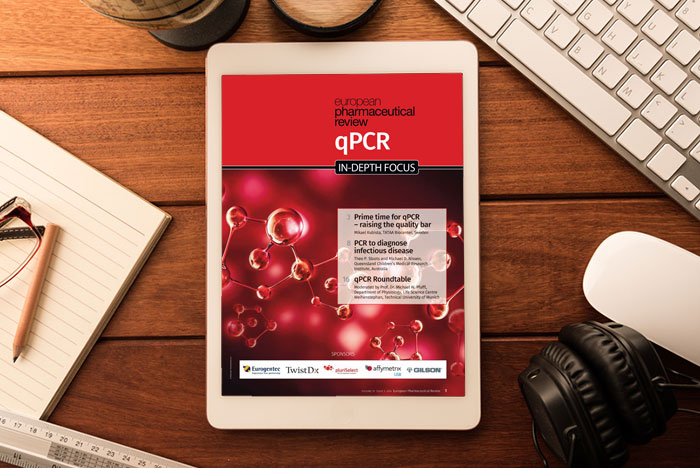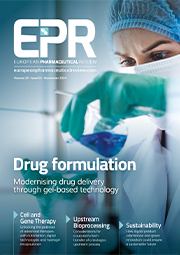qPCR: In-Depth Focus 2014
Posted: 3 July 2014 | European Pharmaceutical Review
In this free-to-view in-depth focus: Prime time for qPCR – raising the quality bar, PCR to diagnose infectious disease, plus qPCR Roundtable…


- Prime time for qPCR – raising the quality bar
Mikael Kubista, TATAA Biocenter, Sweden
Quantitative Real-Time Polymerase Chain Reaction, better known as qPCR, is the most sensitive and specific technique we have for the detection of nucleic acids. Even though it has been around for more than 30 years and is preferred in research applications, it has still to win broad acceptance in routine. Main hurdles are the lack of guidelines, standards, quality controls, and even proper methods to evaluate the diagnostic results. This is now rapidly changing. - PCR to diagnose infectious disease
Theo P. Sloots and Michael D. Nissen, Queensland Children’s Medical Research Institute, Australia
Effective clinical management and treatment of patients with infectious disease relies on the rapid and accurate identification of the causative agent. Yet, until recently, diagnosticians used relatively insensitive methods to detect the infectious agent in clinical specimens, namely microscopy, histology, isolation and culture of pathogens and by measuring the serologic response of the host. - qPCR Roundtable
Moderated by Prof. Dr. Michael W. Pfaffl, Department of Physiology, Life Science Centre Weihenstephan, Technical University of Munich
This qPCR In-Depth Focus is restricted - login or subscribe free to access


Why subscribe? Join our growing community of thousands of industry professionals and gain access to:
- bi-monthly issues in print and/or digital format
- case studies, whitepapers, webinars and industry-leading content
- breaking news and features
- our extensive online archive of thousands of articles and years of past issues
- ...And it's all free!
Click here to Subscribe today Login here
Issue
Related topics
Related organisations
Affymetrix, Eurogentec, Gilson Europe, pluriSelect, Queensland Children’s Medical Research Institute, TATAA Biocenter, Technical University of Munich, TwistDx
Related people
Michael D. Nissen, Mikael Kubista, Prof. Dr. Michael W. Pfaffl, Theo P. Sloots




Just trying to stay current. R